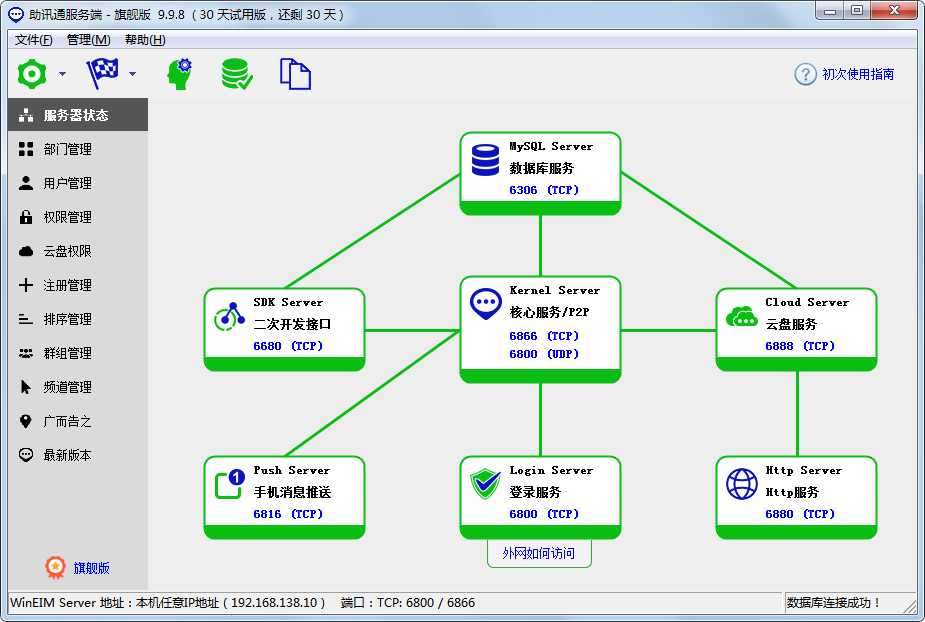linux c获取系统启动时间
时间:2022-04-03 10:34
sysinfo 函数原型
int sysinfo(struct sysinfo *info);
##获取系统相关信息结构体sysinfo 结构体说明
struct sysinfo {
long uptime; /* 启动到现在经过的时间 */
unsigned long loads[3]; /* 1 , 5, 15 分的系统负载*/
unsigned long totalram; /* 总的可用的内存大小 */
unsigned long freeram; /* 还未被使用的内存大小 */
unsigned long sharedram; /* 共享的存储器的大小*/
unsigned long bufferram; /* 共享的存储器的大小 */
unsigned long totalswap; /* 交换区大小 */
unsigned long freeswap; /* 还可用的交换区大小 */
unsigned short procs; /* 当前进程数目 */
unsigned long totalhigh; /* 总的高内存大小 */
unsigned long freehigh; /* 可用的高内存大小 */
unsigned int mem_unit; /* 以字节为单位的内存大小 */
char _f[20-2*sizeof(long)-sizeof(int)];
/* libc5的补丁
};C源码:
#include <stdio.h>
#include <sys/sysinfo.h>
#include <time.h>
#include <errno.h>
static int print_system_boot_time()
{
struct sysinfo info;
time_t cur_time = 0;
time_t boot_time = 0;
struct tm *ptm = NULL;
if (sysinfo(&info)) {
fprintf(stderr, "Failed to get sysinfo, errno:%u, reason:%s\n",
errno, strerror(errno));
return -1;
}
time(&cur_time);
if (cur_time > info.uptime) {
boot_time = cur_time - info.uptime;
}
else {
boot_time = info.uptime - cur_time;
}
ptm = localtime(&boot_time);
printf("System boot time: %d-%-d-%d %d:%d:%d\n", ptm->tm_year + 1900,
ptm->tm_mon + 1, ptm->tm_mday, ptm->tm_hour, ptm->tm_min, ptm->tm_sec);
return 0;
}
int main()
{
if (print_system_boot_time() != 0) {
return -1;
}
return 0;
}版权声明:本文为博主原创文章,未经博主允许不得转载。



























